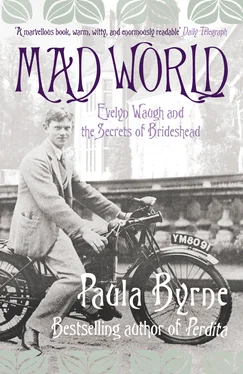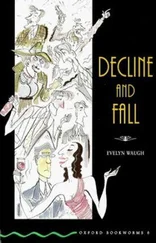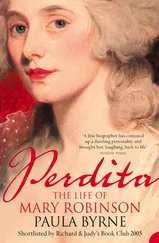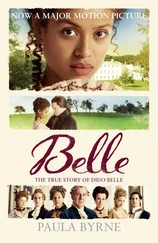1 ...7 8 9 11 12 13 ...26 Outwardly he may have appeared to conform, but his play Conversion was aimed to show that he was still a ‘Bolshie’ at heart. It was a satire on public school values. Its hero, Townsend, clearly a self-portrait, is a rebel blackmailed into conformity. At this time Evelyn wrote in his diary with his usual perceptive candour: ‘I am beginning to think that there must be some malignant fate that makes me foul. I never think of the man behind at all. I spend all my attention on trying to get in front of the man in front.’
He half-jokingly toyed with the idea of suicide, drafting farewell notes to friends. Though he admired the beauty of Lancing’s enormous chapel (best appreciated, he decided, by lying outside on the grass staring up at the imposing stone and the sky), he felt a loss of faith, sparked by a dynamic divinity teacher called Mr Dawlinson: ‘This learned and devout man inadvertently made me an atheist. He explained to his divinity class that none of the books of the Bible were by their supposed authors; he invited us to speculate, in the manner of the fourth century, upon belief in God.’
Evelyn’s last term at school, a golden age for most of his friends, was a time of boredom and depression. Or so he remembered them. But there were happy moments. His last Ascension Day, so different from that first terrible day, was spent with Preters, who had borrowed a motor car. The boys drove to Chichester, got very drunk at luncheon and drove round and round the Market Cross shouting out to passers-by that they were looking for the nearest pub. He also enjoyed pleasant late afternoon sessions behind the chapel, smoking ‘sweet-smelling gold and silk-tipped Levantine cigarettes’.
The last term meant that he was exempt from all the rules. He was now free to walk on the lawns and wear a bow tie. But instead of revelling in his freedom, he founded the Corpse Club ‘for people who are bored stiff’. They wore black ties and black tassels in their buttonholes and wrote on mourning paper. Evelyn was the leader, or ‘Chief Undertaker’.
Evelyn’s anarchic sense of humour always sustained him, no matter how miserable he felt. His school friend Roger Fulford said that ‘without Evelyn’s forceful sense of the ridiculous, the spirit of our House would have been unworthy of recall’. Fulford remembers how they stole into a housemaster’s room to read his correspondence, only to find a hilarious letter concerning an impudent boy who had the temerity to eat pineapple chunks in class. This incident found its way into Waugh’s novel Decline and Fall . What Evelyn took particular delight in was the phrasing ‘he was pleased to belch rudely in my face’. He relished the choice of the words ‘pleased’ and ‘rudely’. This was the same delight as that he took in Roxburgh’s felicitous phrases and put-downs – and indeed in the language of the egregious Dudley Carew. He was honing the ear for dialogue that became so acute in his novels, where pompous people are forever saying serious things that are unintentionally wildly funny.
Even in his final months at Lancing he continued to be plagued by feelings of inadequacy, sensing that he was never first choice in anything, always a sloppy second. Alienated and depressed, generally unpopular, he considered running away: ‘I am burdened with failure this term, when I have been most successful really … Everything I have had has come to me shop-soiled and second hand.’
Evelyn had an almost pathological fear and loathing of the second-hand and the second-rate. For him, Lancing came into both categories. Even whilst writing about his sabotaging of the OTC, he was thinking wistfully of the stylishness of the Eton rebellion. In a sense, this was not Evelyn’s fault. He had already been indoctrinated at home into the view that Sherborne was a much better school than Lancing, and at school, the headmaster, Henry Bowlby, himself a former master at Eton, also impressed upon the boys the superiority of the place where he no longer taught: ‘We held him in some awe and he remained aloof from us, never dissembling the opinion, to which we all assented, that Lancing was a less important place than Eton.’
In his biography of Old Etonian theologian Ronald Knox, the adult Evelyn let slip the awe he felt for Eton. He describes Knox’s relationship with his school as ‘a life-long love’. Like many Old Etonians, Knox found Oxford a very poor second best. Eton, wrote Waugh, ‘was the scene of Ronald’s brilliant intellectual development and of his ardent and undying friendships’. Waugh went on to write that:
Most candid Englishmen recognise it as a school sui generis which marks the majority of its sons with a peculiar Englishry, genial, confident, humorous, and reticent; which gives to each as little or as much learning as his abilities and tastes demand; which, while correcting affectation, allows the genuine eccentric to go his own way unmolested; which nourishes its rare favourites … in a rich and humane traditional culture which admits no rival.
Lancing had not been like that. John Betjeman in his verse autobiography Summoned by Bells has one young man at Oxford saying to him ‘Spiritually, John, I was at Eton.’ The same might perhaps have been said of Evelyn Waugh. When Fulford came up to Oxford, Waugh recommended him not to talk so much about Lancing: ‘If you weren’t at Eton or Harrow or Winchester or Rugby, no-one minds much where you were.’
What Lancing schoolboys did have in common with their peers at major public schools such as Eton was the cynicism they felt with regard to the disasters of the Great War. They firmly blamed the ‘old men’, Arthur Waugh’s generation, who had betrayed the golden boys of Rupert Brooke’s generation. Evelyn used the phrase ‘old men’ for the first time in a speech he gave in his final year at Lancing. He would advert to it repeatedly throughout the next decade in his advocacy of the younger generation at odds with the old. This was his manifesto: ‘No generation has ever wreaked such disasters as the last. After numerous small indiscretions it had its fling of a war which has left the civilised world pauperised, ravaged, shaken to its foundations.’ Evelyn later described his last editorial for The Magazine , entitled ‘The Youngest Generation’, as ‘a preposterous manifesto of disillusionment’:
The men of Rupert Brooke’s generation are broken. Narcissus-like, they stood for an instant, amazedly aware of their own beauty; the war, which the old men made, has left them tired and embittered. What will the young men of 1922 be? … They will be, above all things, clear-sighted … very hard and analytical and unsympathetic … They will not be revolutionaries and they will not be poets and they will not be mystics … they will have … a very full sense of humour … They will watch themselves with … a cynical smile and often with a laugh … They will not be a happy generation.
He would become the voice of that unhappy generation.
Evelyn’s panegyric to Eton as a school sui generis was written at a time when his male friends were almost exclusively Old Etonians. Eton was then, and perhaps is still, considered to be the best public school in England. It had, and continues to have, an unsurpassed record of future prime ministers. Its aura of elegance and tradition was, and remains, the stuff of legend. Even George Orwell wrote of his old school that it had ‘one great virtue … a tolerant and civilised atmosphere which gives each boy a fair chance of developing his own individuality’.
When one of Evelyn’s friends, the writer Cyril Connolly (whom he nicknamed ‘Smarty Boots’), sat his entrance exam at the school, he was utterly entranced. Eton was ‘splendid and decadent … the huge stately elms, the boys in their many-coloured caps and blazers, the top hats, the strawberries and cream, the smell of wisteria’. When he overheard a boy with a top hat call out in a foppish drawl a remark to a passing sculler, it all seemed ‘the incarnation of elegance and maturity’. For Connolly it was a paradise built of ‘wine-dark brick’. He was mesmerised by a huge chestnut tree in Weston’s Yard. ‘I was long dominated by impressions of school,’ he wrote in his memoir Enemies of Promise ; ‘The plopping of gas mantles in the classrooms, the refrain of psalm tunes, the smell of plaster on the stairs, the walk through the fields to the bathing places or to chapel across the cobbles of School Yard, evoked a vanished Eden of grace and security.’
Читать дальше












